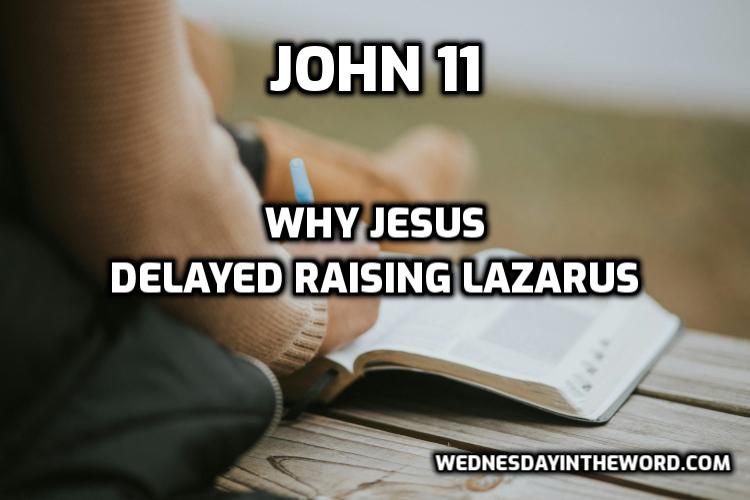Why Jesus Delayed Raising Lazarus (John 11)
Why Jesus Delayed Raising Lazarus : Jesus’s raising of Lazarus proves his authority over death, offering us confidence in his promise of eternal life and setting the stage for the cross.
Setting the Scene (John 10 Recap)
- Jesus faces growing hostility in Jerusalem for claiming to be the Son of God, prompting threats to his life.
- He retreats across the Jordan, but Lazarus’s illness draws him back into danger.
The Purpose of Raising Lazarus (John 11:1-16)
- Jesus delays two days, allowing Lazarus to die, to reveal God’s glory and strengthen the disciples’ faith (John 11:4: “This illness does not lead to death”).
- His cryptic language—“Lazarus has fallen asleep” (John11:11)—teaches that death is no obstacle for him, redefining it as temporary.
- “Walking in the day” (John 11:9-10) shows Jesus following God’s will, unafraid of danger.
- Thomas’s bold “Let us die with him” (John 11:16) reflects courage, not despair.
Martha’s Faith and Jesus’s Claim (John 11:17-27)
- Martha expresses both grief and trust: “If you had been here, my brother would not have died. But even now I know… God will give you” (John 11:21-22).
- Jesus declares, “I am the resurrection and the life” (John 11:25), asserting his authority over death and promise of eternal life for believers.
Raising Lazarus and Fallout from the Miracle (John 11:28-53)
- Jesus weeps (John 11:35) because he is moved by Mary’s and the crowd’s sorrow, not his own loss, showing empathy despite knowing the outcome.
- The miracle will bring joy, but he feels their pain, highlighting both suffering’s reality and its purpose.
- Jesus raises Lazarus after four days (John 11:44), proving his power over death with a public, undeniable sign.
- Response to the miracle is again split. Some believe (John 11:45), others report him to the Pharisees (John 11:46), who fear Roman backlash and plan his death (John 11:47-53).
- Caiaphas’s ironic prophecy—“One man should die for the people” (John 11:50)—unwittingly points to Jesus’s sacrificial death.
More on joy in suffering: Fruit of the Spirit: Joy
Why Jesus Delayed Raising Lazarus: Aftermath and Significance (John 11:54-57)
- Jesus retreats to Ephraim as Passover nears, with the Jewish leaders hunting him, setting up Passion Week.
- The miracle ties together John’s themes: Jesus as Messiah, belief vs. unbelief, and God’s glory through the cross.
- Jesus’s power over death gives us confidence in his promise of eternal life.
- God uses suffering and even unbelief (like Caiaphas’s) for his glorious plan.
Please listen to the podcast for more detail and explanation.
Next: 22 Mary Anoints Jesus and the Triumphal Entry Explained (John 12)
Previous: 20 Why Jesus said “I and the Father are One” (John 10:22-42)
Series: Gospel of John: Believe and Find Life
Study: Gospel of John Bible Study Resources
Podcast season 25, episode 21
Page Views: 336
